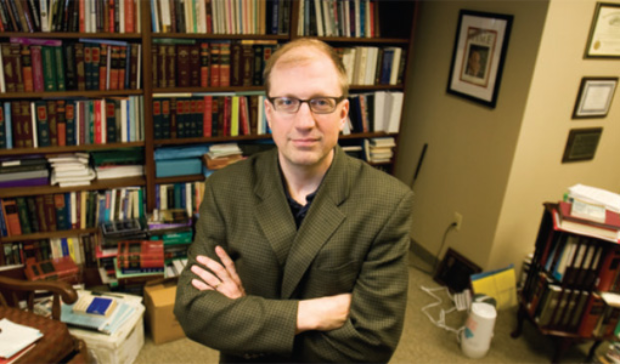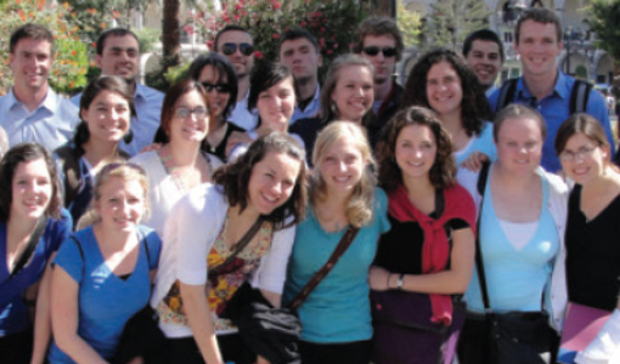In today’s high-tech and digital world, barely a week passes without news of some dispute over intellectual property, the products of human ingenuity protected by patent, copyright and trademark laws. Students share music files through services like Grokster and Kazaa; record companies counter by calling it “stealing” and suing for copyright infringement. Developing countries facing AIDS and malaria epidemics seek to avoid the drug-company patents that block other manufacturers from producing cheaper generic versions of lifesaving medicines. In the United States, patents are sought and even granted on portions of the human genome, raising the prospect of private ownership of the codes for various characteristics of human beings.
Disputes over intellectual property (“IP”) rights not only make headlines but also raise questions of morality and social justice. Is the copying and distribution of creative material “theft” or beneficial sharing of knowledge? How does one define the building blocks of life that ought not to be privately owned? When, if ever, should a patent, which gives the right to preclude others from making, for example, a protected drug without permission, give way to the needs of others for affordable medicines?
On foundational questions of morality and justice, IP touches on teachings of Christianity and other world religions. The Catholic Church has weighed in on the high-profile disputes, opposing the patenting of human genetic material and endorsing limits on patent rights to ensure access to essential medicines. In the early 2000s, when drug patents became a pressing issue before the World Trade Organization, both Pope John Paul II and the Vatican’s WTO observer argued that under Catholic teaching, private property, including intellectual property, must give way to the fulfillment of essential human needs. Since then, Vatican officials have continued to urge greater access to generic medicines, and Latin American bishops have opposed regional trade agreements that would boost patent rights on medicines and genetically engineered crops.
These statements have not articulated a full-scale Christian vision of IP. But that may change. Catholicism has a rich and distinctive approach to property, emphasizing that the goods of the world were created for all people: They have a “universal destination.” Private property ownership is a vital institution, a corollary of human dignity that recognizes the value of individuals’ work and helps ensure that they can exercise both freedom and responsibility. But the equal dignity of all also subjects property rights to a “social mortgage” to ensure that basic human needs are met. In the encyclical Centesimus annus (1991), John Paul II recognized the importance of applying these principles to human intellectual contributions, which have increasingly replaced land and capital as dominant inputs to production: “Today the decisive factor is increasingly man himself, that is, his knowledge, especially his scientific knowledge, his capacity for interrelated and compact organization.” These capacities are the subject of patent and copyright law.
Responding to these developments, the Terrence J. Murphy Institute for Catholic Thought, Law, and Public Policy at St. Thomas is sponsoring a project, which the two of us have initiated, on “Intellectual Property and Religious Thought.” On Sept. 11, 2009, nine leading legal scholars from around the United States met at the School of Law in Minneapolis for a roundtable discussion on how concepts in the Jewish and Christian traditions can contribute to understanding the purposes and scope of IP.1 In the coming months, the project will add participants, ask new questions and include perspectives from other faith traditions. These seminal intellectual explorations at the interface of religious thought and IP will generate public conferences as well as publications. A quick look at a few themes suggests the richness of the topic.
“At the heart of intellectual property debates, therefore, lie questions about the nature of human creativity – a subject about which the biblical traditions have quite a lot to say.”
The fundamental IP balance – between private ownership of specific intellectual contributions and public access to the more general building blocks – has been explained in terms of both social utility and natural rights. The first account emphasizes that economic incentives may be necessary to enable creators to devote their full energy to producing works or inventions; the second emphasizes that creators have the right to be rewarded for the fruits of their labors. The second approach typically, though not always, points toward broader protection of IP.
At the heart of IP debates, therefore, lie questions about the nature of human creativity – a subject about which the biblical traditions have quite a lot to say. One of the Murphy roundtable participants, Roberta Kwall of DePaul’s law school, has drawn from the Genesis creation stories the lesson that creative activity is fundamental, “intrinsic” to humans because it “mirrors or imitates God’s creative capacity” and is “undertaken in response to divine command.”2 Related to the second point is the biblical theme of stewardship: that we, like the servants in so many of Jesus’ parables, are charged to take care and use resources given to us by the Lord. This includes our own creativity, which is likewise a gift to us; laws should encourage us to use it for the good of others.
Creativity as gift and as stewardship obligation holds many potential implications for IP. Kwall concludes that laws must look beyond economic incentives, recognizing creativity as “a response to an inherent drive” in the creator’s spirit. She calls for laws giving creators, among other things, stronger rights to receive attribution for their works, a matter more of dignity than of economic consequence. But stewardship, as one of us (Ruth Okediji) has noted, also raises the converse question: Do creators have an affirmative duty to use IP rights actually to create? Is it morally appropriate to define IP rules in ways that exclude certain forms of creativity, such as those originating from less industrialized countries? Stewardship principles force us to reconsider the terms on which we invest our inherent creative talents, and also how overlapping spheres of creative activity should be managed. Consider, for example, “patent trolls” who buy up patents primarily to extract royalties from others trying to invent in the same field. An absolute view of property treats this as the patent-holder’s right – as does American law – but the stewardship vision calls it into question.
One of us (Berg) has specifically applied Catholic teaching on the “preferential option for the poor” to IP.3 That teaching seeks not only to ensure that essential human needs are met, but also to empower the poorest individuals to become more vibrant creators and producers. These themes provide a grounding for the Church’s interventions to ensure access to medicines and also call on us to examine how IPrelated laws and policies can encourage the provision of education and the transfer of technology to developing countries.
Another participant in the Murphy roundtable, Neil Netanel of UCLA’s law school, has described copyright law as a vital institution of a “democratic civil society” that aims to encourage broad participation in expressing and building upon ideas.4 By recognizing private property rights, copyright enables creators to support themselves in the marketplace without having to rely on government patronage. But just as important, Netanel emphasizes, are the limits on copyright allowing individuals, for example, to comment on works and use them for educational purposes. Copyright law “is in, but not entirely, of the market”: It is a limited property right that “deliberatively and selectively employs market institutions” to promote the goal of full participation in civil society.
Christian teaching on property, especially Catholic teaching, finds many parallels in Netanel’s approach to copyright – exemplifying the rich interactions that the Murphy project will encourage. Both approaches emphasize that private property rights should encourage a robust civil society empowering individuals to engage in creative activities that are “public” in that they aim to benefit others, but are not state-controlled. Both emphasize that the important institutions of civil society rely on economic markets but are not defined by them. Above all, both emphasize that private property – including intellectual property – is an important but limited right, existing not just for efficiency’s sake, but to serve the ideals of human dignity and empowerment.
1) The participants, in addition to the two of us, included Margo Bagley (University of Virginia), Wendy Gordon (Boston University), Roberta Kwall (DePaul), Mark McKenna (Notre Dame), Neil Netanel (UCLA), David Opderbeck (Seton Hall) and Frank Pasquale (Seton Hall).
2) Roberta Rosenthal Kwall, “Inspiration and Innovation: The Intrinsic Dimension of the Artistic Soul,” Notre Dame Law Review 81 (2006): 1945, 1951-63.
3) Thomas C. Berg, “Intellectual Property and the Preferential Option for the Poor,” Journal of Catholic Social Thought 5 (2008): 193-233.
4 Neil Netanel, “Copyright and a Democratic Civil Society,” Yale Law Journal 106 (1996): 283, 288, 347.







